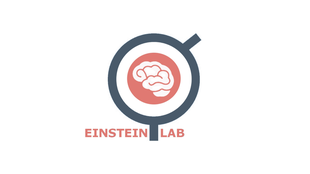Research Study, take part: How ovary removal impacts your brain

The Einstein Lab in the Department of Psychology at the University of Toronto
Are you a BRCA mutation carrier? You can get involved and help research that looks into how having your ovaries removed impacts your brain.
A team of researchers from the Einstein Lab in the Department of Psychology at the University of Toronto is looking for volunteers to help in their research looking at how hormones impact cognition.
We asked the team about their research and how to get involved.
What is your Estrogen and Cognition study about?
The purpose of this study is to understand the effects of ovarian removal on cognition (thinking, attention, and memory) from one year to 10 years post-surgery. Specifically, we want to determine how estrogen* withdrawal over time affects young middle-aged women.
Why are you looking at women in particular?
Although we generally like to believe there are no sex differences in our cognitive function and capacity, science says that cognitive and memory functions are very different between males and females.
We know that generally, females show advantages in verbal fluency, perceptual speed, accuracy, and fine motor skills, while males lead in spatial, working memory, and mathematical abilities. Because of the differences in the production of sex hormones between males and females, the chemical differences in our bodies affect the way we think and perceive the things around us.
Why would having your ovaries removed make any difference to your brain?
Ovaries are responsible for producing and releasing women's sex hormones, like estrogen —and yes, even testosterone. Unfortunately, women who are at high risk of breast or ovarian cancer (like those with faulty BRCA genes or Lynch syndrome) may have undergone the removal of their ovaries (bilateral salpingo-oophorectomy, BSO), to lower their risk of these cancers. Some famous examples of women who have undergone this surgery are Angelina Jolie and Christina Applegate.
After the surgical removal of the ovaries all body systems are chemically altered—including the brain. Brain cells, known as neurons, that depend on oestrogen for growth and health, start losing their connections to other neurons. Ovarian removal before the age of 50 (menopause) leads to 2X the risk of Alzheimer's disease.
What has research shown us so far?
A recent study from our lab investigating the effects of BSO in younger women showed an effect on two kinds of memory, and interestingly women who were taking a form of oestrogen called estradiol maintained their spatial memory. These promising results provide hope for women who have undergone BSO to have solutions for preserving memory and cognition later in life.
What is this new study hoping to find out?
There are still major gaps to be filled that will help provide a deeper understanding of how women who have undergone BSO are affected and what preventative measures can help post-BSO women reduce the loss of cognitive function.
Our Estrogen and Cognition project seeks to understand the effect of estrogen on memory, by working with women who have undergone the surgery. We are trying to determine whether genes, sleep, and the immune system make a difference both to memory and to the brain.
The aim is to make a strong link between estrogen and memory to learn how a lack of estrogen may increase women’s risk of Alzheimer's disease. The information gained from this study will be useful for women who are considering having preventive surgery in the future, as well as for women who have already elected to have this procedure.
Who can be a part of the study?
We are looking for:
Women with a BRCA1 or BRCA2 mutation who are considering having or had ovary removal surgery (salpingo-oophorectomy) before the age of 50.
Participants need to be between the ages of 30 and 60 and must speak English.
How much time will it take?
The online study will take around 1 hour and 15 minutes and you will receive $30 (Canadian)** as compensation.
I’m in the UK - can I still get involved?
Yes! In August 2020, we launched the online component of the study which can be completed by participants in the comfort of their own home!
Click here to sign up. To find out more about the Einstein Lab, click here.
*The study uses the spelling "estrogen" using American English, either spelling of estrogen and oestrogen can be used.
**$30 (Canadian) is roughly equal to £17.50.